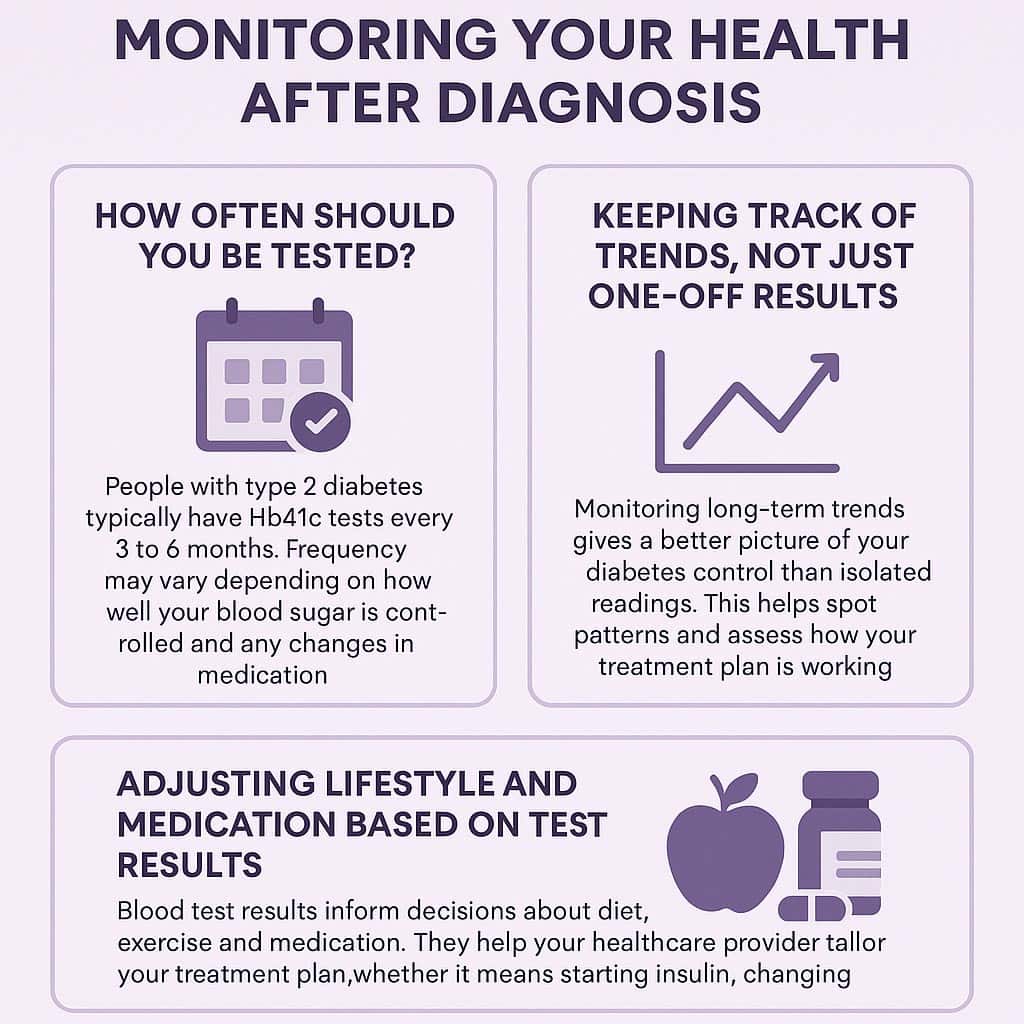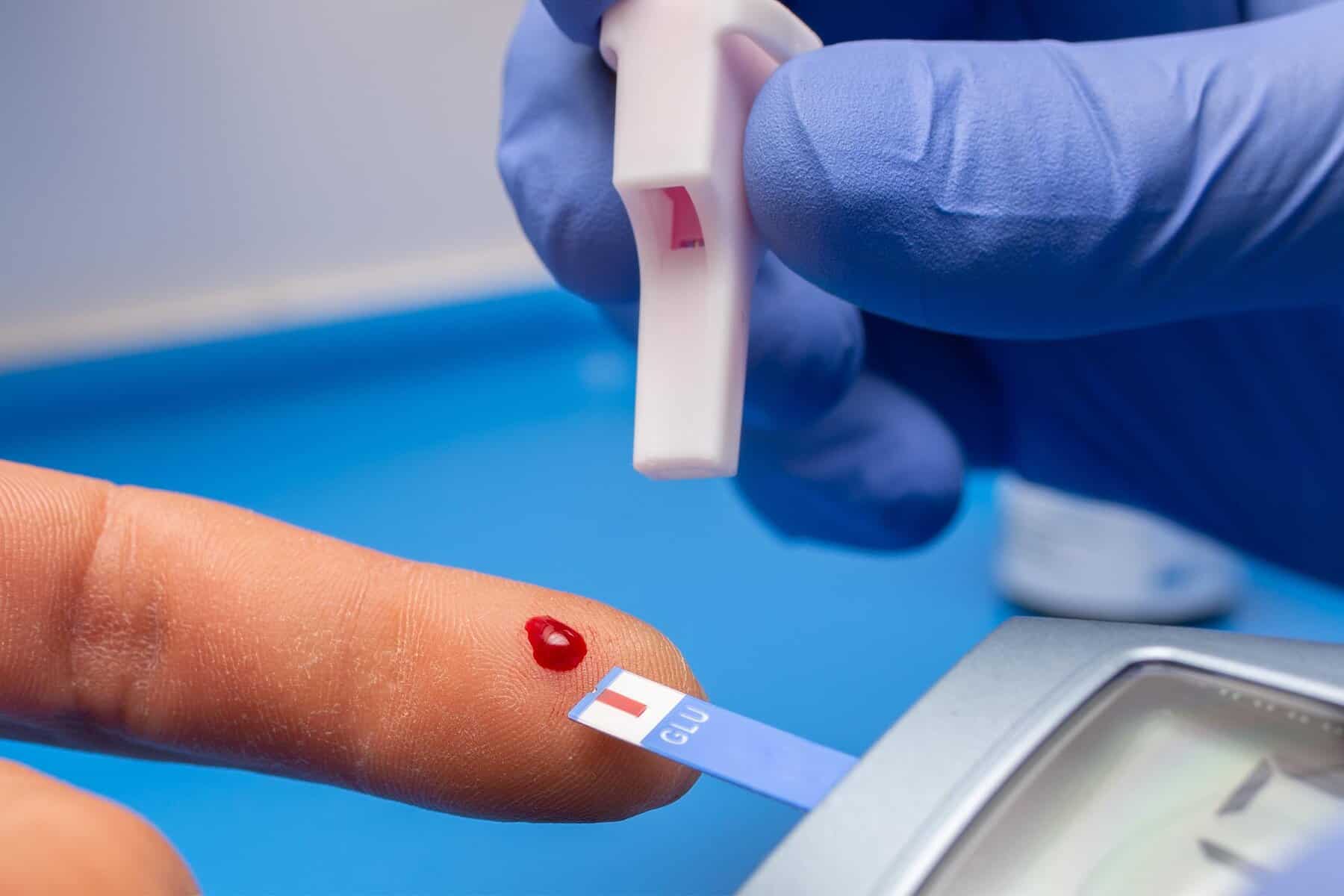Type 2 diabetes is on the rise across the UK, and many people don’t realise they have it until symptoms become hard to ignore. Because it can develop gradually and without obvious signs, early detection is key to effective treatment. Blood tests for diabetes can identify raised glucose levels before they cause serious complications, allowing you to take better control of your health.
Why Early Detection of Diabetes Matters
Type 2 diabetes affects more than 4.3 million people in the UK, and the number is growing. One of the challenges is that early signs (such as fatigue, increased thirst or frequent urination) can be mild or mistaken for other issues.
Regular blood testing helps by picking up high blood sugar before it leads to nerve damage, kidney problems or cardiovascular disease. Whether you have risk factors like family history, being overweight or high blood pressure, or just want to stay on top of your health, knowing when and how to test matters.
Key Blood Tests Used in Diagnosing Diabetes
HbA1c – The Gold Standard for Long-Term Glucose Control
HbA1c measures your average blood sugar over the past 2–3 months. It’s the most common test for diagnosing diabetes and monitoring ongoing control. A result of 48 mmol/mol or above confirms diabetes, while 42–47 mmol/mol indicates prediabetes.
Fasting Blood Glucose – What It Reveals
The fasting Glucose Blood test measures your blood sugar after not eating for 8–10 hours. It’s often used alongside HbA1c to confirm a diagnosis. A fasting level above 7.0 mmol/L typically indicates diabetes.
Oral Glucose Tolerance Test (OGTT)
The Oral Glucose Tolerance test checks how your body handles glucose over time. After drinking a sugary solution, your blood sugar is measured at intervals. It’s useful in diagnosing gestational diabetes and identifying impaired glucose tolerance.
Random Blood Sugar Tests and When They’re Used
Random Blood Sugar tests can be done at any time of day and are useful if symptoms are present. A result over 11.1 mmol/L, along with symptoms, may indicate diabetes and prompt further testing.
What Your Blood Test Results Really Mean
Diagnostic Thresholds for Prediabetes and Diabetes
- Normal HbA1c: Below 42 mmol/mol
- Prediabetes: 42–47 mmol/mol
- Diabetes: 48 mmol/mol or higher
Fasting glucose thresholds follow a similar pattern, with readings between 5.5 and 6.9 mmol/L signalling increased risk.
What’s Considered a “Normal” HbA1c or Glucose Level?
For most people, a healthy HbA1c is under 42 mmol/mol, and fasting glucose should be below 5.5 mmol/L. Your GP will interpret these values alongside your symptoms and medical history.
How Age, Weight and Health Conditions Affect Results
Factors such as age, body mass and other health conditions (like anaemia or kidney disease) can influence blood test results. That’s why context matters. One reading alone doesn’t tell the full story.
Monitoring Your Health After Diagnosis

Supporting Blood Tests You Might Encounter
Cholesterol and Lipid Profiles
Since diabetes increases the risk of heart disease, regular cholesterol checks and lipid profiles are important. Your GP will assess levels of LDL, HDL and triglycerides to guide prevention strategies.
Kidney Function (eGFR, U&E)
Diabetes is a leading cause of kidney damage. Kidney function tests examine creatinine, urea and electrolytes, along with estimated glomerular filtration rate (eGFR), help track kidney health.
Liver Function Tests – Especially for Those on Medication
Some diabetes medications can affect the liver, so monitoring liver enzymes through routine liver function testing ensures safe treatment.
Tips for Getting Accurate Blood Test Readings
When to Fast (and When Not To)
Follow fasting instructions carefully if your GP has ordered a fasting glucose or lipid test. Typically, this means avoiding food and drink (except water) for 8–10 hours.
Managing Stress, Sleep and Food Before a Test
Poor sleep, high stress or recent heavy meals can affect blood glucose levels. Aim for a restful night and a calm morning before your test.
Keeping a Record of Medications and Supplements
Bring a list of all your medications and supplements to the appointment. This helps ensure accurate interpretation of your results, especially if you’re taking steroids, statins or herbal remedies.
Stay Informed, Stay Empowered
Truly understanding your blood test for diabetes gives you significantly more control over your health. Tools like digital health apps and home glucose monitors can simplify tracking. With the right support, staying on top of your diabetes care becomes part of your everyday wellbeing.
Learn more about our full range of private diabetes blood tests in Reading and how we support early diagnosis.


